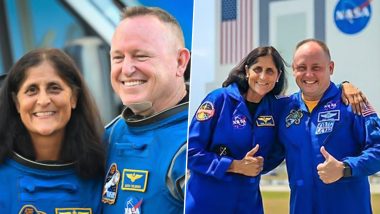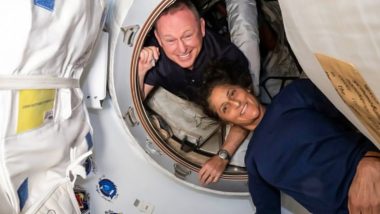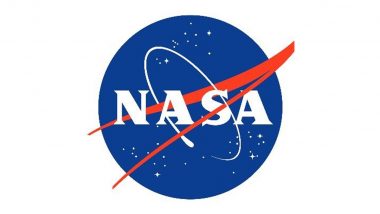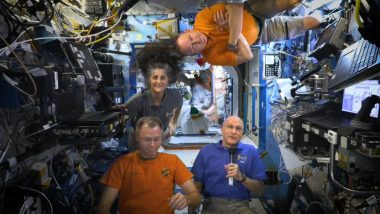Mumbai, December 18: Sunita Williams and Barry "Butch" Wilmore, two NASA astronauts currently aboard the International Space Station (ISS), will remain in orbit until at least March 2025 as NASA has once again delayed the launch of SpaceX Crew-10. The postponement, attributed to the need for additional time to prepare a new Dragon spacecraft, pushes the return timeline further for the astronauts, who were originally expected to rotate out earlier.
Steve Stich, manager of NASA's Commercial Crew Program, emphasized the meticulous process involved in fabricating, assembling, testing, and integrating a new spacecraft, praising SpaceX for its dedication to expanding the Dragon fleet. NASA and SpaceX explored alternative solutions for the upcoming crew rotation, such as using a different Dragon spacecraft or adjusting mission schedules. However, after thorough evaluation, they concluded that delaying Crew-10's launch to late March 2025, ensuring the completion of the new Dragon capsule, would best meet NASA’s goals and support the ISS objectives for the coming year. Sunita Williams and Don Pettit Celebrate Christmas in Space: NASA Astronauts Pose for Holiday Portrait Aboard the ISS and Spread Festive Cheer (View Picture).
NASA’s SpaceX Crew-9, featuring Nick Hague, Sunita Williams, Barry Wilmore, and Roscosmos’ Aleksandr Gorbunov, will return to Earth after Crew-10’s arrival, following a handover period for a seamless transition. Meanwhile, Crew-9 and Expedition 72 are conducting research, preparing for spacewalks, and utilizing supplies delivered in November, which include essentials and holiday items for the crew. Sunita Williams Health Declining at ISS? Stuck in Space, India-Origin Astronaut Looks Much Thinner Than Usual in Photos; NASA Addresses Health Concerns.
NASA astronaut Don Pettit will return to Earth aboard the Soyuz spacecraft, marking the end of Expedition 72. While most space station missions last about six months, some have stretched to nearly a year, offering critical data on how humans adjust to long-term spaceflight. These findings are essential for advancing plans for deep-space exploration, including missions to the Moon and Mars.
(The above story first appeared on LatestLY on Dec 18, 2024 07:45 AM IST. For more news and updates on politics, world, sports, entertainment and lifestyle, log on to our website latestly.com).













 Quickly
Quickly





















